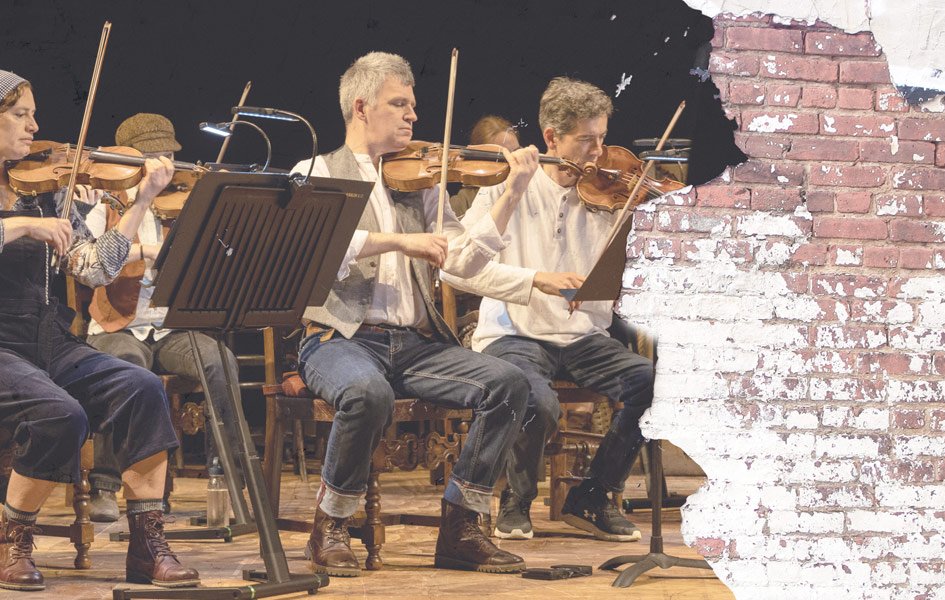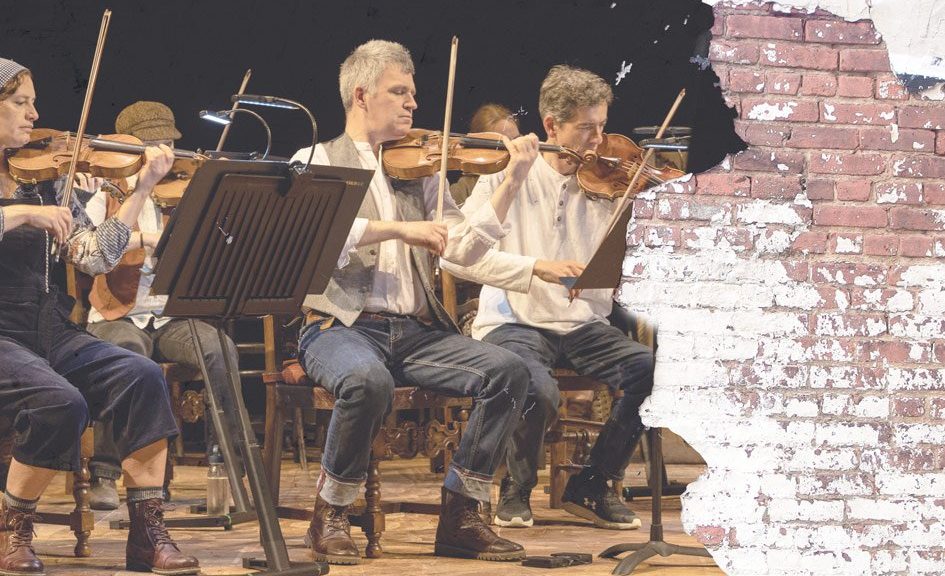
 (4 / 5)
(4 / 5)
In what would be a trip finally making it to Stratford Upon Avon, I was here for a few days. I caught the eye of an exciting concert. The Orchestra of the Swan offered up a riotous evening of Avant-Garde delights, of both the musical and spoken kind.
It was a hefty programme, spanning almost a Millenia, thanks to narrator Mogali Masuku. She delivered all the spoken material, with a sharpness and attention. Though she did fluff quite a few lines, perhaps a bit more rehearsal would have helped. Saying this, I loved her energy, she sat during the music and was easily lost in her own little ballet. It was highly infectious. Her range of writing saw Dickens, Blake, Dr King, Hildegard von Bingen with plenty more. There may not have been much of a through line between the spoken work, but the emphasis on the radical paired well with the music which followed.
David Le Page as director and lead violin exuded vitality, the whole group of musicians played wonderfully with him. The orchestra has a great air to them, approachable and highly attractive. Amazing how with such breeze they change from one work to another, with little of tonal whiplash. Revolution 9 from John Lennon is a brief affair, recognisable and easily parodied as a meditation on the number and some fluttery notes that follow. Extracts from Shostakovich’s String Quartet No. 8 proved perfectly suited with Arthur Koestler’s Darkness at Noon. Paranoid pangs of being taken in the night by the powers that be are spoken of, were a real worry for the composer also. Perhaps the best pairing of the night, the Shostakovich was alert and wonderfully deary.
Blake’s America a Prophecy, with Mogali reading was wonderfully evocative of the new world and its use of metaphor. Biber’s Battalia is a resounding thrill, proving composers were tinkering with discordant ideas a long time before modernism. The amazing, putty like effect of smearing the notes to create the fermentation of unease, without really being too challenging musically. The piece proves a lot and is always a lot of fun. Jean-Féry Rebel, in an arrangement by Le Page of Choas was another addition to this idea, I found I had goosebumps throughout. Classical in form, though not afraid to shock with further alternative ideas on shape and harmony.
Readings from John Cage and the I Ching, are fascinating views on quietness and the random manner of life. Hearing 4’33 by Cage, we sit in silence, the players at a complete rest. Via a computer, no notes were given to Cage for the pieces and so he famously chose to present it as a piece of music anyway. How sacred a moment to spend in almost silence, the Quakers and others know the value of it and we should to. I found it rather cathartic to be in my own rest state if only for these few minutes. Dare I say…twas life affirming.
Piazzolla’s Four for Tango is another shock and delight, proving you can meddle with convention, this time in the tango genre. Gil Scott-Heron (another Le Page arrangement) and the iconic The Revolution Will Not Be Televised was a jazzy scope, the words of truth ringing out circling the Civil Rights Movement, Mogail coming into her own here, aside a reading of Martin Luther King. Voodoo Child by Jimi Hendrix (a Le Page arrangement) also went down well, a perfumed, heightened listen. The end featured T. S. Eliot and Beethoven’s Eroica Symphony finale, a stirring sprit to wrap up with, the latter being solidly done, the former abstract yet true.
This sold out concert proved a triumph and would have faired well with a younger audience, as a first experience of concert going.

